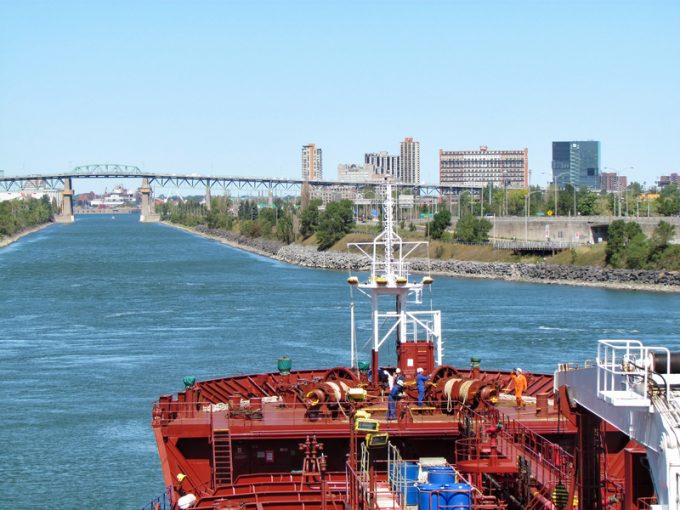Overtime ban at port of Montreal goes on as 'special mediator' is rejected
Canadian shipping stakeholder hopes of a prompt resolution of the dispute at the port of ...
GM: RAISING THE ROOF GGM: IN FULL THROTTLE GZIM: MAERSK BOOST KNIN: READ-ACROSSMAERSK: NOT ENOUGHMAERSK: GUIDANCE UPGRADEZIM: ROLLERCOASTERCAT: HEAVY DUTYMAERSK: CATCHING UP PG: DESTOCKING PATTERNSPG: HEALTH CHECKWTC: THE FALLGXO: DEFENSIVE FWRD: RALLYING ON TAKEOVER TALKODFL: STEADY YIELDVW: NEW MODEL NEEDEDWTC: TAKING PROFIT
GM: RAISING THE ROOF GGM: IN FULL THROTTLE GZIM: MAERSK BOOST KNIN: READ-ACROSSMAERSK: NOT ENOUGHMAERSK: GUIDANCE UPGRADEZIM: ROLLERCOASTERCAT: HEAVY DUTYMAERSK: CATCHING UP PG: DESTOCKING PATTERNSPG: HEALTH CHECKWTC: THE FALLGXO: DEFENSIVE FWRD: RALLYING ON TAKEOVER TALKODFL: STEADY YIELDVW: NEW MODEL NEEDEDWTC: TAKING PROFIT

Shipping on the St Lawrence Seaway between Montreal and Lake Erie ground to a halt on Sunday after 361 workers in the Unifor labour union in Ontario and Quebec walked off the job.
The strike began seconds after midnight as contract negotiations with the St Lawrence Seaway Management Corp (SLSMC) broke down.
Now, business interest groups want the federal government to intervene to reopen shipping on this vital artery as soon as possible.
Talks continued after the union had served a 72-hour strike notice on Wednesday, but failed to reach an agreement.
According to Unifor, the two sides have been “1,000 nautical miles” apart on the question of remuneration, the main sticking point in the negotiations, which began in June after the labour contract expired.
The shutdown of the system is not affecting intra-US shipping in the Great Lakes system, but 13 of the 15 locks in the St Lawrence Seaway are in Canada, so traffic to between US points in the system and markets in Canada and beyond has ceased.
Last year, 36.2m tonnes of cargo, worth C$16.7bn (US$11.45bn) moved through the Seaway. According to the port of Montreal, the ecosystem serves 75% of Canada’s manufacturing capacity and nearly two-thirds of the nation’s population.
About half the traffic in the system is steel and grain, but there is also a fair amount of project cargo, such as wind energy components moving as far as Duluth to reach wind farms on the prairies.
The SCLC has applied to the Canada Industrial Relations Board for an order to apply the Canada Labour Code related to the movement of grain during a strike. A disruption of steel shipments would impact North American automotive supply chains already struggling with a strike by workers at the big three Detroit automakers.
According to the SLSMC, there are no vessels stuck in the system at this point, as they were moved out before the strike deadline. However, more than 100 ships outside the system are affected.
The Canadian Federation of Independent Business has called on the government in Ottawa to step in to avoid a lengthy strike, which would be hard on small and mid-sized businesses, especially after the turbulence this year from labour shortages, inflation and the strike at Vancouver and Prince Rupert ports.
The organisation also wants federally regulated workers essential to the supply chain to be classified as such, to avoid similar strikes in the future, and the Canadian Chamber of Commerce has also called for government intervention, as any stoppage on the vital waterway hurts the economy.
Federal transport minister Pablo Rodriguez and labour minister Seamus O’Regan have issued statements urging both sides to resume negotiations.
Comment on this article